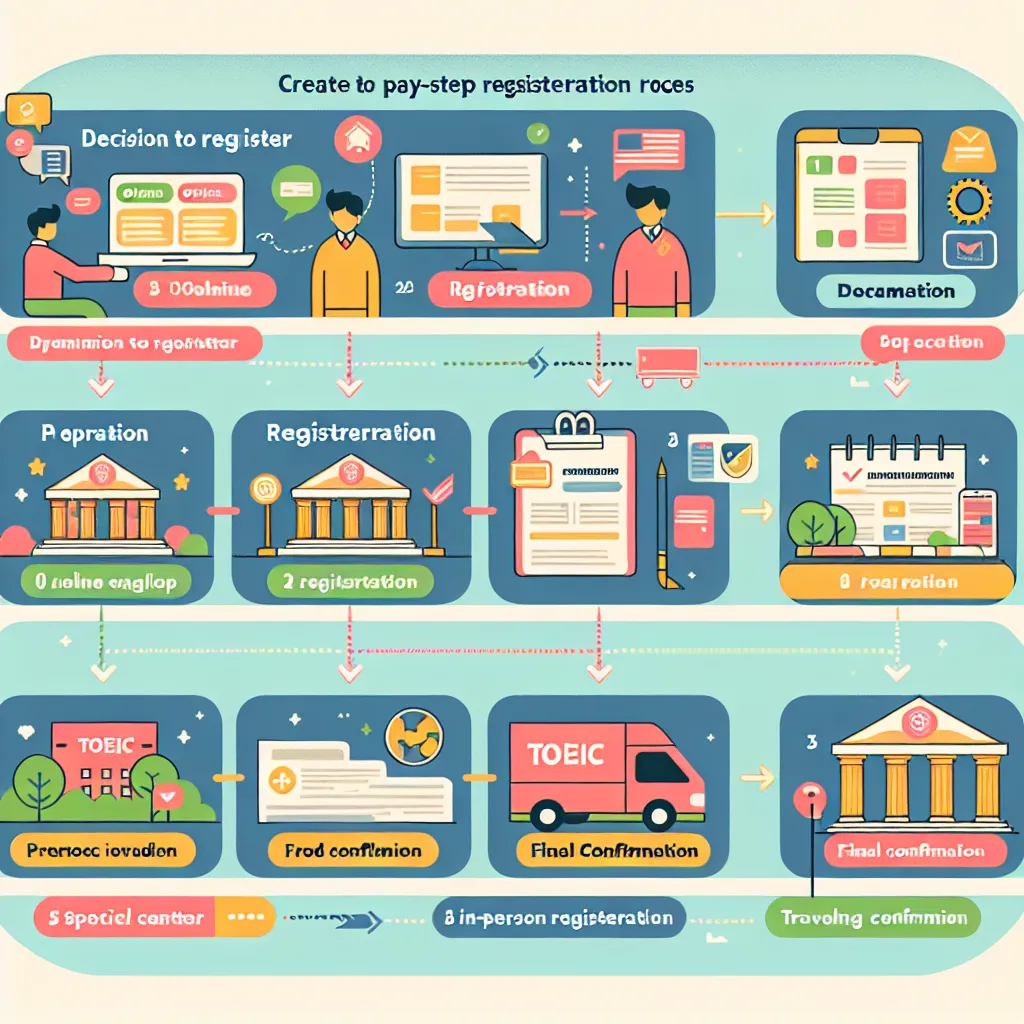In today’s globalized world, English proficiency has become increasingly important for students pursuing higher education and career opportunities. One widely recognized measure of English language skills is the Test of English for International Communication (TOEIC). But Is TOEIC Necessary For Students? Let’s delve into this question and explore the various aspects of TOEIC’s relevance in academic and professional settings.
Understanding TOEIC and Its Importance
TOEIC is a standardized test designed to measure the everyday English skills of people working in an international environment. It primarily focuses on listening and reading comprehension, making it different from other English proficiency tests like IELTS or TOEFL.
 TOEIC exam preparation
TOEIC exam preparation
Why TOEIC Matters for Students
- Global Recognition: TOEIC is accepted by thousands of organizations worldwide, including multinational companies, universities, and government agencies.
- Career Advancement: Many employers use TOEIC scores as a benchmark for hiring and promotion decisions.
- Academic Requirements: Some universities require TOEIC scores for admission or graduation, particularly in non-English speaking countries.
- Skill Assessment: TOEIC provides a comprehensive assessment of practical English skills used in real-world situations.
The Relevance of TOEIC for Different Student Groups
Undergraduate Students
For undergraduate students, the necessity of TOEIC largely depends on their future goals and the requirements of their institution:
- If planning to study abroad, other tests like IELTS or TOEFL might be more relevant.
- For those aiming to work in international companies after graduation, TOEIC can be a valuable asset.
- Some universities in non-English speaking countries may require TOEIC scores for certain programs or as a graduation requirement.
Graduate Students
Graduate students may find TOEIC more relevant, especially if they’re planning to enter the workforce soon:
- Many graduate programs, particularly in business and engineering, value TOEIC scores.
- For research positions or academic collaborations, TOEIC can demonstrate English proficiency.
- Some graduate schools use TOEIC scores as part of their admission criteria.
Vocational Students
TOEIC can be particularly beneficial for vocational students:
- Many technical and vocational fields require employees to have a certain level of English proficiency.
- TOEIC focuses on practical, work-related English, which aligns well with vocational training.
- Some vocational programs incorporate TOEIC preparation into their curriculum.
Advantages of Taking TOEIC for Students
- Improved Job Prospects: A good TOEIC score can set you apart in the job market, especially for positions requiring English skills.
- International Opportunities: TOEIC scores are recognized globally, opening doors to international study and work opportunities.
- Personal Development: Preparing for TOEIC can significantly improve your overall English language skills.
- Objective Measure: TOEIC provides an impartial assessment of your English proficiency, which can be useful for personal goal-setting.
Potential Drawbacks and Considerations
While TOEIC offers many benefits, it’s important to consider some potential drawbacks:
- Limited Scope: TOEIC primarily tests listening and reading skills, not speaking or writing.
- Cost: There are fees associated with taking the test, which may be a consideration for some students.
- Time Investment: Preparing for TOEIC requires dedicated study time, which might compete with other academic priorities.
- Relevance to Specific Fields: Some academic or professional fields may prefer other English proficiency tests.
How to Decide if TOEIC is Necessary for You
To determine if TOEIC is necessary for your academic or career path, consider the following steps:
- Research Your Field: Investigate whether TOEIC is commonly required or valued in your area of study or intended career.
- Check University Requirements: If you’re planning to study abroad, check if your target universities accept or require TOEIC scores.
- Consult with Advisors: Speak with academic advisors or career counselors about the relevance of TOEIC in your specific situation.
- Evaluate Your Goals: Consider your long-term career goals and whether TOEIC aligns with these objectives.
- Compare with Alternatives: Research other English proficiency tests to see which might be more suitable for your needs.
 Student deciding on TOEIC
Student deciding on TOEIC
Preparing for TOEIC: Tips for Success
If you decide that TOEIC is necessary for your academic or career goals, here are some tips to help you prepare:
- Understand the Test Format: Familiarize yourself with the structure and types of questions in the TOEIC test.
- Practice Regularly: Use official TOEIC practice materials and online resources to hone your skills.
- Improve Your Vocabulary: Focus on building business and professional English vocabulary.
- Enhance Listening Skills: Practice listening to English news broadcasts, podcasts, and business discussions.
- Read Widely: Engage with a variety of English texts, including business articles and reports.
- Take Practice Tests: Simulate test conditions to improve your time management and reduce test anxiety.
Conclusion
While TOEIC may not be necessary for all students, it can be a valuable asset for many, particularly those aiming for international careers or studying in fields where English proficiency is crucial. The decision to take TOEIC should be based on your individual goals, academic requirements, and career aspirations. By carefully considering the pros and cons and assessing your personal situation, you can make an informed decision about whether TOEIC is the right choice for you.
Remember, regardless of whether you choose to take TOEIC, continuously improving your English skills is always beneficial in our increasingly interconnected world. Whether through TOEIC or other means, investing in your language abilities can open up a world of opportunities for your academic and professional future.




